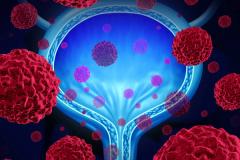
Best Supportive Care for Patients With Bladder Cancer
A brief discussion on supportive care available to patients with bladder cancer and the role it plays within the treatment pathway.
Episodes in this series

Transcript:
Petros Grivas, MD, PhD: In that regard, Nerina, of course, we deal with patients, and the patients have many needs. But could you comment a bit on the ancillary services, [and the] best supportive care we may have for those patients to deal with different challenges and issues we may have? The supportive care environment we have at our institution.
Nerina T. McDonald, PA-C: Yes, definitely. These are teams I’m working with very frequently. I let patients know when they come in that everyone’s journey through treatment is going to look different, and different people are going to come up with significant toxicities that are affecting them more than others. But I am typically using our integrative medicine service; if patients are having issues with neuropathy, there’s the option for acupuncture through that service. We have a great palliative care team at Fred [Hutchinson Cancer Center], so they are helping with symptom management, ranging from constipation management, diarrhea, nausea, and emesis. Those are some of the ancillary services I’ve found really helpful when patients are on active therapy, or even if they are on a treatment break or something like that, those are good services to have available to consult.
Petros Grivas, MD, PhD: [I] totally agree with you. Lisa, [do you have] anything to add from your practice for the best supportive care in ancillary services?
Lisa Adams, PA-C: Yes. I definitely feel like it takes a village to take care of our folks with cancers of any tissue type, but bladder cancer in particular. We do always try to connect our patients newly diagnosed advanced bladder cancer with our GU [genitourinary] nurse navigator. Then also, some people benefit from meeting with our financial counselor services because there’s a financial toxicity that can definitely happen with treatment. Then social work, and we have a really great oncology rehab program too, to help people maintain strength and stamina, or improve from where they’re starting from, during their cancer journey.
Petros Grivas, MD, PhD: [I] totally agree, great points. I see value in all those services, in nutritionists, genetic counseling, palliative care, integrative medicine, psychologists, psychiatrist support sometimes, physical therapy, occupational therapy. It takes a village, as you mentioned, Lisa. It’s a multifaceted challenge for those patients to get through physically and emotionally. I think the beauty of our model of care is the multidisciplinary approach. We take into account many specialties, and we discuss with the patient that this is to support them through their treatment, as Nerina mentioned. Our goal is, of course, in the metastatic disease setting, to prolong survival, delay progression, achieve some tumor response, improve quality of life, and preserve their function. I think all those services can definitely help us achieve those goals.
Transcript edited for clarity.
Newsletter
Stay up to date on recent advances in the multidisciplinary approach to cancer.







































